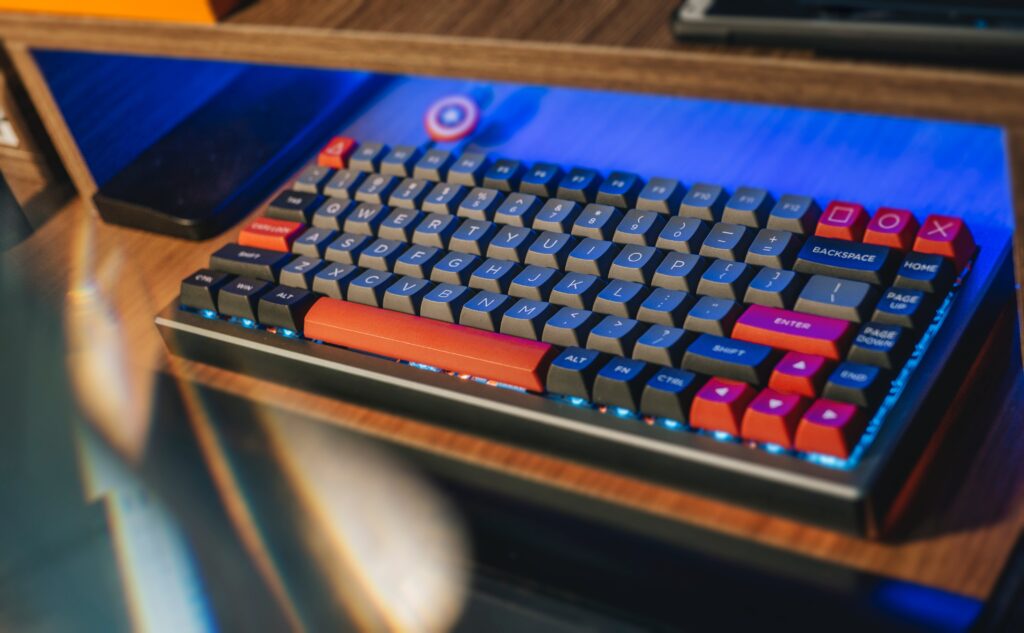Intro
Welcome to the digital age of genealogy! With the ever-evolving role of technology in the world of family history, it’s no surprise that more and more people are turning to their computer for genealogy research. But with the vast array of options available, it can be overwhelming to choose between a laptop or desktop for your genealogy work. As a regular reader and someone who may be new to the world of genealogy, you may be wondering which is the best computer for genealogy. Well, let’s dive into the pros and cons of both options and help you make the right decision for your genealogy journey.
Genealogy in the Digital Age
In the digital age, genealogy research has transformed from a laborious task to an accessible, interactive experience. Once dominated by physical archives and hand-written family trees, genealogy now benefits from a plethora of online tools and databases that make tracing your roots a breeze. From sophisticated genealogy software to extensive digital libraries, genealogy online is a powerful platform that allows you to explore your lineage from the comfort of your home.
Websites like Ancestry.com and FamilySearch.org provide a treasure trove of historical records and documents. There are also social networking sites specifically for genealogists where you can connect with others, exchange information, and possibly discover distant relatives. Digitization has indeed made it easier for individuals to trace their heritage back generations, compile family trees, and share their findings with family members near and far. This has made the once daunting task of genealogy research an exciting and rewarding journey.
Desktop vs. Laptop: The Core Differences Between Computers for Genealogy
When choosing a computer for genealogy, understanding the fundamental differences between a desktop and a laptop is crucial. Here’s a comparison of the key features:
- Desktops, with their larger size, often house more robust hardware, potentially offering superior processing power, storage capacity, and graphics capabilities. This can make dealing with large genealogy databases smoother and more efficient. However, their size also means they are not portable, which can limit your research flexibility.
- Laptops, on the other hand, are designed for portability. They allow you to take your genealogy research anywhere — libraries, archives, or family visits. Their more compact design does mean they may not match the raw performance of a desktop, but advances in technology have led to high-performance laptops that meet most genealogy software requirements.
- Desktops typically offer more customizability and upgradability, allowing you to tailor your machine to your specific genealogy needs over time. Laptops are generally less flexible in this respect.
- On the flip side, laptops require less space and are easier to set up than desktops, making them a good choice if you’re short on space or move around frequently.
Remember, each has its strengths and weaknesses; the decision depends on your unique genealogy needs.
Portability and Convenience

For the genealogists who are constantly on the move, the appeal of portable laptops for genealogy research is undeniable. Laptops are designed to be mobile, lightweight, and compact, making them a practical choice for those who need to work in libraries, archives, or during family visits.
Their slim design and built-in battery make it easy to set up a workspace virtually anywhere, so you can take full advantage of those spontaneous genealogy discoveries. Not only that, but the convenience of being able to quickly access information and take notes on the go is a significant advantage. No need to wait until you get home to input new data or make adjustments to your family tree – with a laptop, you can do it in real time.
The convenience of a laptop extends to the ability to immediately connect and share your findings with others, no matter where you are. So, if your genealogy journey often takes you beyond the confines of your home, the portability of a laptop may well tip the scales in its favor.
Performance and Specification Needs for Genealogy
When considering the performance and specification needs for genealogy, your computer should have:
- A multi-core processor with a speed of at least 2.0 GHz to handle multiple tasks simultaneously.
- At least 8GB of RAM to ensure smooth operation of genealogy software and browsers.
- A hard drive with a minimum of 256GB storage for saving large amounts of genealogical data and images.
- A reliable Internet connection to access online genealogy databases and cloud storage.
These genealogy laptop specifications can be met by both laptops and desktops. However, desktops often come with superior processors and storage capacity, ideal for handling large genealogy databases efficiently. This makes them a strong contender if high performance is your priority.
In contrast, while laptops might not match the raw power of a desktop, technological advancements have led to the creation of high-performance laptops that can comfortably meet the needs of genealogists. These machines combine portability with sufficient power to run genealogy software smoothly, making them a viable option for those who prioritize flexibility and mobility.
Cost Considerations When Choosing Computer for Genealogy
When budgeting for your genealogy computer, cost is a significant factor. You’ll find that with similar features, desktops often come at a lower price point than laptops. However, remember that the initial purchase is just one part of the overall cost. You might need to invest in peripherals like a monitor, keyboard, and mouse for a desktop setup. Meanwhile, laptops are all-in-one solutions but may require a higher initial investment. Another cost computer for genealogy consideration is potential upgrades.
Desktops typically offer more flexibility in this area and can be a more cost-effective option long-term, especially if you’re comfortable with technology and willing to upgrade components yourself.
A little-known fact is that depending on your specific needs and requirements for genealogy research, it may be more cost-effective to build a custom desktop rather than purchasing pre-built components from major manufacturers. Thus, while laptops provide portability and convenience, desktops often offer a better price-to-performance ratio. Be sure to factor in these considerations when budgeting for your genealogy computer.
Ergonomics and User Comfort

Ergonomics plays a critical role in your genealogy journey, particularly if you’ll be spending long hours conducting research. Desktops generally allow for a more ergonomic setup. With separate keyboards and mouse devices, they enable users to maintain a comfortable posture and minimize strain. They also come with larger screens, which reduce eye strain. In contrast, laptops are more compact, but this might lead to hunched postures over time.
However, it’s crucial to note that you can enhance the comfort of your ergonomic laptop for genealogy with accessories like laptop stands, external keyboards, and ergonomic mice. These can significantly improve your posture, reducing the risk of carpal tunnel syndrome or other repetitive strain injuries. Meanwhile, portable laptops for genealogy research offer the convenience of being able to create a comfortable workspace wherever you go.
Both platforms have their merits, and your choice should depend on the environment you’ll be working in most frequently. Ultimately, user-friendliness and comfort should be among your top considerations when selecting your genealogy computer.
Screen Size and Display Quality

When diving deep into your genealogical research, a key consideration is the screen size and display quality of your computer. Detailed genealogical records and multiple windows demand a clear, large screen for optimal viewing. Desktops typically offer larger screens with superior resolution, ideal for navigating extensive genealogy databases and scrutinizing intricate family trees.
However, laptops have also made considerable strides in display technology, boasting crisp, high-resolution screens that can vividly present your family history. The compact screen of a laptop, though, might pose a challenge when viewing multiple documents or conducting extensive research simultaneously. Luckily, there’s a solution for laptop users: an external monitor for genealogy.
By connecting your laptop to an external monitor, you can dramatically increase your screen size and resolution. This arrangement lets you easily manage multiple windows and documents, making your genealogy research more efficient. So, when considering your screen for genealogy computer, think about your research style and how much screen real estate you need to comfortably navigate your genealogical journey.
Computer for Genealogy – Upgrade Potential and Longevity
Desktops often win the longevity game, thanks to their ability to be upgraded. If your genealogy needs grow over time, you can enhance your desktop with new parts, increasing its lifespan. Laptops, however, are not as easily upgradeable due to their compact design. For future-proofing, consider a machine with high specifications from the start. Keep in mind, however, that advancements in technology might outpace even the highest-spec machines over time.
Additional Tools and Accessories

Supplementing your genealogy laptop or desktop setup with additional tools and accessories can greatly enhance your research efficiency. External hard drives, for example, offer extra storage space for your extensive genealogical data and serve as a safe backup. Scanners come in handy for digitizing old photos, letters, and documents, preserving them for future generations. Invest in a good quality mouse and keyboard, especially for desktop users, for improved comfort during long research hours.
A high-resolution monitor can be a worthwhile addition for laptop users, providing a larger display for easy navigation through databases and family trees. Don’t forget the importance of an organized, efficient genealogy workspace. A clutter-free desk with a good desk lamp, comfortable chair, and organized filing system can significantly boost your productivity.
Additionally, a printer can be useful for hard copies of records, and a surge protector can safeguard your equipment. Incorporating these tools into your genealogy workstation can take your research experience to new heights.
Which Computer for Genealogy Will You Choose?
In conclusion, both laptops and desktops bring their strengths to your genealogy journey. The portability of a laptop offers flexibility and convenience, especially for those who conduct research outside of their home. It’s a compact solution with everything in one package. However, the robust performance and upgrade potential of a desktop can make it an efficient powerhouse for genealogy, especially for those who work predominantly from a dedicated workspace.
The ultimate decision depends on your unique needs, budget, and working style. Consider your genealogy computer’s core purpose. If you need a mobile solution for on-the-go research, a high-performance laptop might be your best bet. However, if your genealogy work is mostly stationary with heavy data processing, a desktop could be more beneficial.
Reflect on the pros and cons, consider your priorities and make an informed decision that will best support your genealogy exploration. Remember, technology is only a tool; it’s your passion and curiosity that will unravel the fascinating stories of your lineage.
PS. Please check our another article about Choosing Best Laptop For Genealogy
